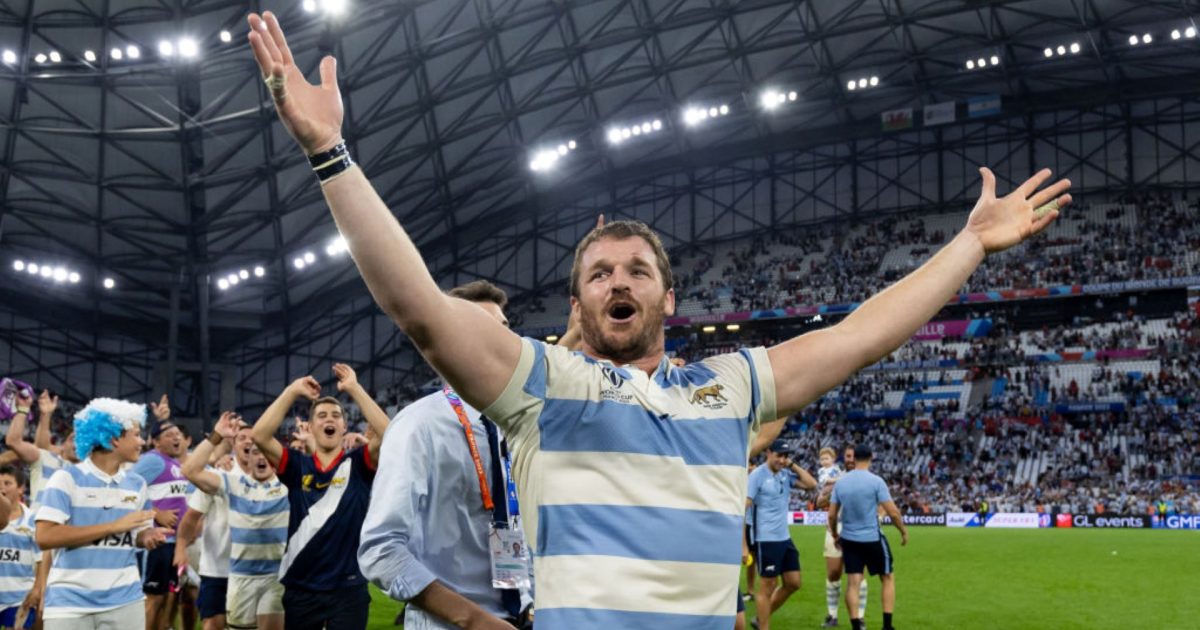Ce qu'il faut savoir sur la demi-finale Argentine vs Nouvelle-Zélande

L’Argentine et la Nouvelle-Zélande ont rendez-vous vendredi au Stade de France en ayant conscience que 80 minutes, voire plus si affinités, les séparent de la grande finale de samedi prochain.
Le sélectionneur des All Blacks, Ian Foster, a apporté deux changements au XV titulaire lors de la master class de dépossession qui avait mené à la victoire 28-24 contre l’Irlande à Saint-Denis samedi soir. Samuel Whitelock remplace Brodie Retallick en deuxième ligne et Mark Tele’a supplante Leicester Fainga’anuku sur l’aile gauche.
Beauden Barrett, qui a marqué un essai lors de ses deux derniers matchs contre les Pumas, s’apprête à les affronter pour la 19e fois de sa carrière. Seul le deuxième ligne sud-africain Eben Etzebeth affiche plus de confrontations avec les Sud-Américains.
L’Argentine va disputer sa troisième demi-finale de Coupe du Monde de Rugby après avoir remonté un déficit de 10 points en quarts de finale contre le pays de Galles. Elle avait déjà atteint le dernier carré en 2007 et 2015 mais elle s’y était à chaque fois inclinée. En 2007, elle avait baissé pavillon face à l’Afrique du Sud, qui avait remporté la dernière édition disputée en France, et il y a huit ans, elle avait perdu contre l’Australie à Twickenham.
Le sélectionneur des Pumas, Michael Cheika, n’a procédé qu’à un changement dans l’équipe victorieuse 29-17 du pays de Galles, préférant Gonzalo Bertranou à Tomás Cubelli à la mêlée.
HISTORIQUE
En 36 matchs qui les ont opposés à leurs rivaux du Rugby Championship, les Pumas ne se sont imposés que deux fois : en novembre 2020 et en août 2022.
Dix des joueurs retenus dans le groupe des 23 néo-zélandais avaient pris part à ces deux matchs perdus : Sam Whitelock, Shannon Frizell, Rieko Ioane, Jordie Barrett, Tyrel Lomax, Richie Mo’unga, Ardie Savea, Aaron Smith, Codie Taylor et le capitaine, Sam Cane.
MATCH MARQUANT
En 2011, Sam Whitelock, qui allait sur ses 23 ans, avait disputé son premier quart de finale de Coupe du Monde de Rugby, remporté 33-10 face à l’Argentine à l’Eden Park. À l’époque, il n’avait compilé que neuf sélections dans une carrière qui en compte aujourd’hui 152. Modèle de professionnalisme, le futur Palois cherchera à rééditer cette performance 12 ans plus tard, ce qui lui permettrait de devenir le premier joueur de l’histoire à disputer trois finales de Coupe du Monde de Rugby.
POINT-CLÉ
La troisième fois sera-t-elle la bonne pour l’Argentine ? En tout cas, elle ne part pas favorite, elle qui n’a jamais atteint la finale et affiche un bilan nettement défavorable contre la Nouvelle-Zélande. Mais les Pumas ont enregistré quelques victoires face aux All Blacks ces derniers temps et les voilà de nouveau en demi-finales de la Coupe du Monde de Rugby. Un match à élimination directe où tout est possible.
FACE-À-FACE
Facundo Isa – Ardie Savea. Un duel qui ravira tous les amoureux de la troisième ligne, tant les deux hommes semblent au sommet de leur art avant de se retrouver face à face vendredi. Isa va fêter sa 50e sélection avec les Pumas, lui qui avait atteint la barre des 25 deux ans après ses débuts en 2014 contre l’Écosse, avant de retrouver la sélection en 2019 pour connaître ses 24 caps suivantes.
Savea, qui a inscrit trois essais lors de ses deux derniers matchs, a également aplati dans l’en-but lors de ses deux derniers rendez-vous avec l’Argentine. Le troisième ligne centre n’a jamais marqué lors de trois matchs internationaux consécutifs. Faut-il s’attendre à une première vendredi soir à Saint-Denis ?
L’INCROYABLE STAT
Samedi dernier, la Nouvelle-Zélande a entamé son quart de finale contre l’Irlande par une séquence offensive à 30 phases, avant de parvenir à neutraliser l’assaut final des Irlandais sur 37 phases, ce qui constitue un record en Coupe du Monde de Rugby.
L’ARBITRE
Angus Gardner (Australie). Il s’apprête à arbitrer cette affiche pour la cinquième fois de sa carrière. Il s’agira de sa première désignation dans un match à élimination directe en Coupe du Monde de Rugby et de sa quatrième apparition dans cette édition 2023. Il était au sifflet lors de la victoire des Pumas contre les All Blacks en 2020, ainsi que lors de la dernière confrontation entre les deux équipes, qui s’était soldée par un succès 41-12 de la Nouvelle-Zélande en Rugby Championship.
LES ÉQUIPES
ARGENTINE Juan Cruz Mallía ; Emiliano Boffelli, Lucio Cinti, Santiago Chocobares, Mateo Carreras ; Santiago Carreras, Gonzalo Bertranou ; Thomas Gallo, Julián Montoya (capitaine), Francisco Gómez Kodela ; Guido Petti Pagadizabal, Tomas Lavanini ; Juan Martín González, Marcos Kremer, Facundo Isa.
Remplaçants : Agustín Creevy, Joel Sclavi, Eduardo Bello, Matias Alemanno, Rodrigo Bruni, Lautaro Bazán Vélez, Nicolás Sánchez, Matías Moroni.
NOUVELLE-ZÉLANDE Beauden Barrett ; Will Jordan, Rieko Ioane, Jordie Barrett, Mark Tele’a ; Richie Mo’unga, Aaron Smith ; Ethan de Groot, Codie Taylor, Tyrel Lomax ; Samuel Whitelock, Scott Barrett ; Shannon Frizell, Sam Cane (capitaine), Ardie Savea.
Remplaçants : Samisoni Taukei’aho, Tamaiti Williams, Fletcher Newell, Brodie Retallick, Dalton Papali’i, Finlay Christie, Damian McKenzie, Anton Lienert-Brown.




